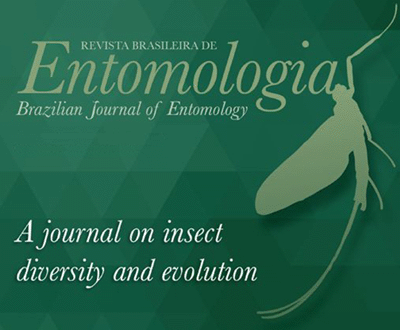ABSTRACT
The small tomato fruit borer Neoleucinodes elegantalis is a pest of wild and cultivated solanaceous of economic importance, such as tomatoes, eggplant, peppers and scarlet eggplant. We compared the development, survival and reproduction of N. elegantalis in cultivated and wild Solanaceae as alternative hosts in the absence of tomato plants in the field. The development time was significantly affected by the host plant and was longer in larvae feeding on eggplant. Survival of the immature stages was higher in larvae fed on tomato and eggplant, although the development cycle was completed in all hosts. Fecundity was also influenced by the host plant and was lower when the larvae fed on scarlet eggplant and the wild solanaceae Solanum paniculatum (jurubeba). The net reproductive rate was lower in jurubeba and the intrinsic growth rate was higher in Solanum sp. The results show that both wild Solanum species can act as alternative hosts for N. elegantalis during the intercropping of tomato in winter and autumn and may thus act as larval reservoirs for infestations on cultivated species. The large number of hosts able to sustain the development of N. elegantalis is another factor, together with world’s climate changes, to increase the invasive potential of N. elegantalis into tomato-producing countries.
Keywords:
Alternative hosts; Biology; Behavior; Small tomato fruit borer; Invasion risk; Eggplant; Solanum lycopersicum
